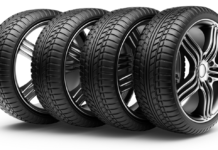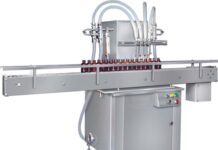BlueWeave Consulting, a leading strategic consulting and market research firm, in its recent study, estimated global automotive tensioner market size at USD 1.6 billion in 2022. During the forecast period between 2023 and 2029, BlueWeave expects global automotive tensioner market size to grow at a significant CAGR of 4.4% reaching a value of USD 2.2 billion by 2029. Major growth factors for global automotive tensioner market include increasing demand for light weight vehicles across the globe, rising automotive production in both emerging & developed countries, surging demand for lightweight vehicles to enhance vehicle fuel economy around the world and growing development of automotive sector. Rising awareness about global warming and other environmental issues, as well as the development of fuel-saving technology, are few primary factors expected to increase demand for vehicle tensioners. As a result, increased demand for lighter and more compact automobile tensioners is likely to boost the global automotive tensioner market during the period in analysis. The automobile tensioner extends the life of the belt by maintaining an appropriate tension under all conditions. Aside from that, with rising car demand from a growing urban population, global automotive production output is projected to grow at a high CAGR during the forecast period. Hence, the demand for automobile tensioners is expected to grow globally.
Global Automotive Tensioner Market – Overview
An automotive tensioner exerts pressure to the chain or belt used in the vehicle’s drive to tighten it. This device maintains the right tension on the timing chain or belt while also transferring crankshaft rotation to the camshaft and accessory drive belts. It is frequently used in automobile engines to reduce timing belt noise and strengthen engines. According to International Organization of Motor Vehicle Production estimates, 97 million automobiles were produced globally in 2017, up from 95 million in 2016. As consumers’ preference for lightweight automobiles rises, the market for automotive tensioners is likely to skyrocket. Lighter automobiles are expected to contribute to global advances in vehicle fuel economy. Automobile tensioners will become more popular as fuel-saving technologies and environmental consciousness improve, particularly in view of concerns such as global warming.
Sample Request @ https://www.blueweaveconsulting.com/report/automotive-tensioner-market/report-sample
Impact of COVID-19 on Global Automotive Tensioner Market
COVID-19 had a detrimental impact on the expansion of the automotive industry and other sectors around the world. Due to the imposed lockdown, which caused people to stay at home, this epidemic has impacted most enterprises around the world. The imposed lockdown resulted in a drop in car sales, reducing the worldwide automotive tensioner industry. However, the worldwide automotive tensioner market is expected to expand beginning in 2021 because of economic measures, and the government has taken certain initiatives to restore financial losses suffered by the stoppage of corporate operations during the COVID-19 pandemic.
Global Automotive Tensioner Market– By Vehicle Type
By vehicle type, global automotive tensioner market is bifurcated into Passenger Vehicle and Commercial Vehicle segments. The passenger car segment is expected to increase at a faster rate. Because fewer passenger vehicles are produced than business vehicles. The US car industry produced over 1.9 million passenger vehicles in 2020, a reduction of more than 23% from 2019. In 2020, 55.8 million passenger cars will be produced worldwide. With sales of about 20 million vehicles in 2020, China was the world’s largest regional auto market. Also, passenger vehicle includes hatchback, sedan, MPV and SUV.
Competitive Landscape
Major players operating in global automotive tensioner market include Continental AG, ABA Automotive, ALT America Inc., C R Products Ltd, Litens Automotive Group, GMB Corporation, Dayco Products LLC, NTN Corporation, Gates Corporation, Muhr und Bender KG, KMC Automobile Transmission, FAI Automotive Plc, and Pricol Limited. To further enhance their market share, these companies employ various strategies, including mergers and acquisitions, partnerships, joint ventures, license agreements, and new product launches.
Contact Us:
BlueWeave Research Blog
Phone No: +1 866 658 6826
Email: info@blueweaveconsulting.com














